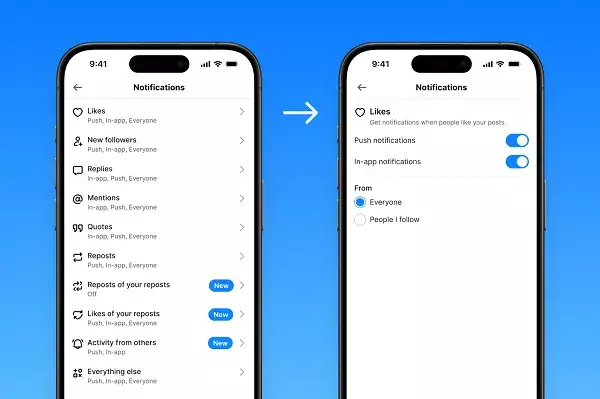In the rapidly shifting landscape of social media, platforms are constantly vying to capture user attention and loyalty. Bluesky, a newcomer striving to position itself as a compelling alternative to the dominant Twitter (now rebranded as X), attempts to emulate the core functionalities of its more established rival. Its latest updates, centered around notification management and personalized experiences, highlight a broader trend: the race to offer more features that echo industry leaders, without necessarily establishing a definitive advantage. While Bluesky introduces tweaks like customizable activity notifications, these changes merely replicate what users already enjoy on X, raising questions about whether the platform can carve out a unique identity amid fierce competition.
At its core, Bluesky’s approach reveals a fundamental challenge—balancing user expectations for control with the pervasive desire for simplicity. The notion of decentralization and heightened user agency sounds appealing in theory, promising autonomy over what content appears on one’s feed. However, the practical application often falls short because the additional effort required to customize settings clashes with modern users’ ingrained expectations for seamless experiences. In an age where instant gratification and ease of access reign supreme, the initial promise of control risks becoming just another layer of manual management that discourages widespread adoption.
Why Ease of Use Continues to Dominate User Preferences
To understand why platforms like Bluesky struggle despite offering promising features, one must examine human behavior and the psychology behind social media usage. Users are often motivated not by theoretical benefits but by tangible convenience. The more straightforward and frictionless the process—whether it’s creating an account, finding friends, or keeping up with updates—the more likely consumers are to engage and stick around.
Take Mastodon, for example: despite its decentralization and privacy advantages, it has failed to reach mainstream popularity because it demands users to grapple with server choices and system configurations. Its complexity acts as a barrier for the average user, who simply desires a familiar, easy-to-use platform. Conversely, Threads from Meta has gained popularity precisely because it integrates effortlessly into Instagram, allowing users to join with a single tap—no fuss, no configuration, no extra effort. The user’s desire to remain connected without additional hurdles ultimately favors streamlined, convenience-driven platforms over those that demand a steep learning curve or manual adjustments.
This pattern underscores a fundamental misconception: while users verbalize a preference for privacy and control, their actual behavior suggests otherwise. Comfort and convenience tend to win out over complex settings, especially when the difference in experience is marginal at best. The trade-off between autonomy and simplicity is not merely aesthetic—it’s pragmatic. Platforms that overemphasize the former without delivering a clear, user-friendly experience risk alienation, no matter how noble their underlying philosophies.
Is Decentralization and Control a Losing Battle?
Bluesky’s emphasis on decentralization and individual user control may be philosophically appealing, but it faces a significant roadblock—public appetite. The average social media user is not an enthusiast willing to invest time and effort into managing their online experience. They prefer a platform that delivers relevant content automatically, curated subtly by algorithms designed to serve their preferences without invasive effort. Here lies the paradox: users dislike feeling manipulated by algorithms but also dislike the extra work required to customize their feeds by hand.
The reality is that recommendation algorithms, despite their imperfections, have become the “default comfort zone” for users. They reduce cognitive load, keep the experience engaging with minimal effort, and foster addiction through personalized content delivery. Platforms like Twitter or X capitalize on this, even as they face criticism for opaque algorithms and data privacy concerns. Bluesky’s attempt at offering more control might be admirable, but unless it substantially differentiates itself through value, usability, or innovation, it will struggle to topple giants that prioritize ease of access.
Ultimately, the social media fabric is woven with threads of familiarity, convenience, and social validation. A platform cannot succeed solely on noble ideals of user empowerment if the daily user experience is riddled with complexity. The challenge for Bluesky and other decentralization advocates is to find ways to integrate user control without sacrificing the simplicity that keeps users engaged. Until then, the market will likely favor platforms that prioritize seamless, effortless social interactions—regardless of their centralized or decentralized nature.


Leave a Reply